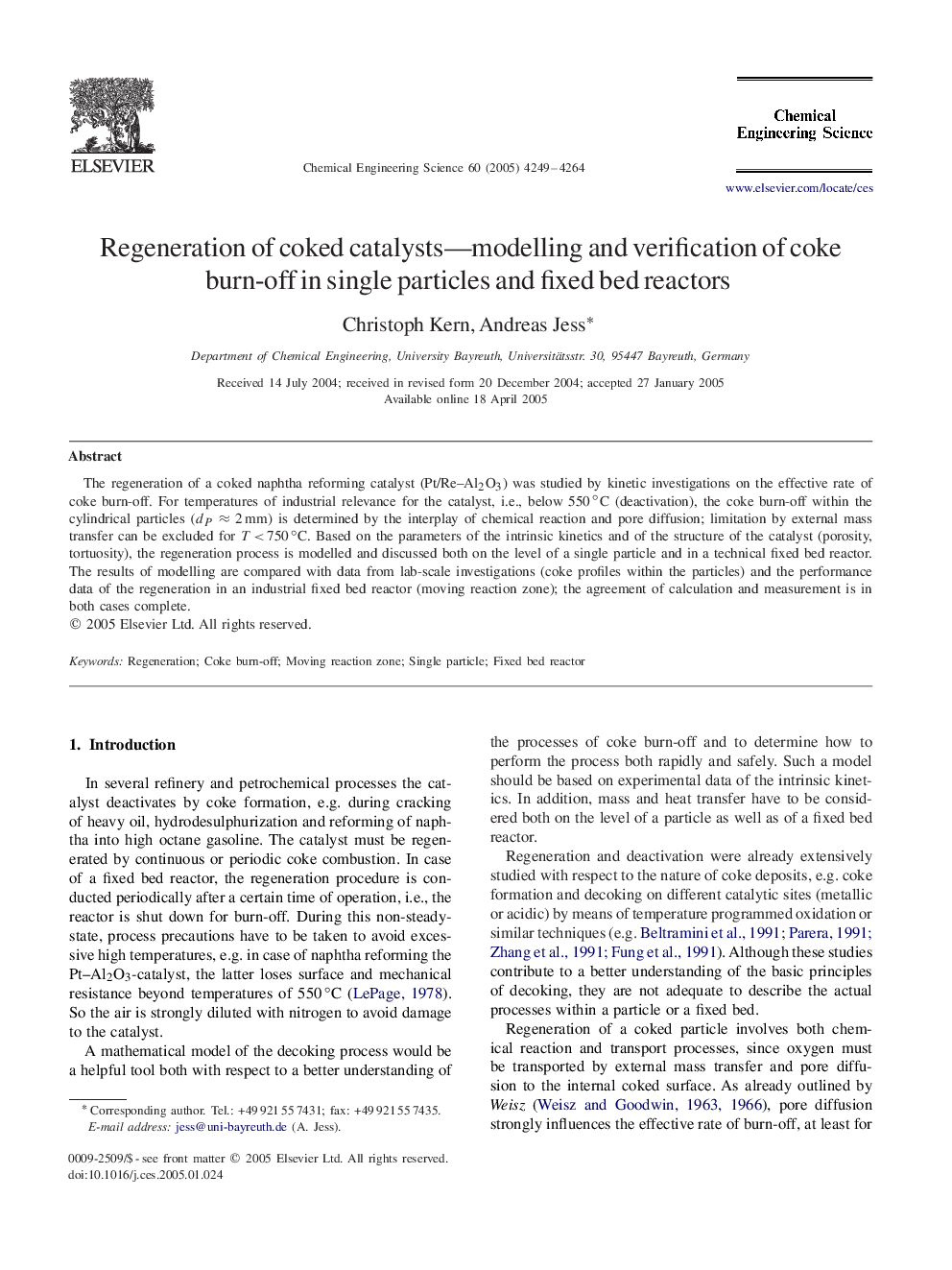| Article ID | Journal | Published Year | Pages | File Type |
|---|---|---|---|---|
| 161302 | Chemical Engineering Science | 2005 | 16 Pages |
The regeneration of a coked naphtha reforming catalyst (Pt/Re–Al2O3Al2O3) was studied by kinetic investigations on the effective rate of coke burn-off. For temperatures of industrial relevance for the catalyst, i.e., below 550∘C (deactivation), the coke burn-off within the cylindrical particles (dP≈2mm) is determined by the interplay of chemical reaction and pore diffusion; limitation by external mass transfer can be excluded for T<750∘C. Based on the parameters of the intrinsic kinetics and of the structure of the catalyst (porosity, tortuosity), the regeneration process is modelled and discussed both on the level of a single particle and in a technical fixed bed reactor. The results of modelling are compared with data from lab-scale investigations (coke profiles within the particles) and the performance data of the regeneration in an industrial fixed bed reactor (moving reaction zone); the agreement of calculation and measurement is in both cases complete.
